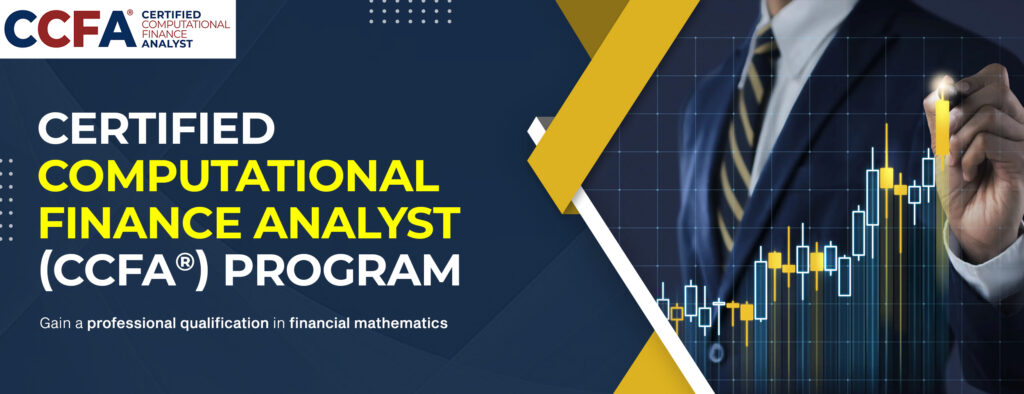
OVERVIEW
Gain a Professional Qualification in Financial Mathematics
The Executive Certificate in Computational Finance program allows students to study at the intersection of mathematics, statistics, finance, economics and Excel modelling.
The program focuses on topics such as statistical risk management, regression analysis, portfolio theory and applications of mathematical theory.

Learning Objectives
- Understand and use basic math, informatics and finance jargon.
- Ability to categorize different problems and have an idea how to approach the solution.
- Use MS Excel and solve complex math problems using MS Excel approaches.
- Translate descriptions of business / financial situations into formal financial models, and investigate those models in an organized fashion
The Executive Certificate in Computational Finance is awarded by International Federation of Professional Managers UK in collaboration with National Institute of Accounting Technicians.
Body of knowledge
Computational finance generally involves the application of mathematical and statistical techniques, along with computer programming, to analyze financial markets and manage financial risks. Below is a general outline of the knowledge areas that will be covered in a certificate program or training related to computational finance:
Mathematics for Finance:
• Advanced calculus and mathematical techniques relevant to financial modeling.
• Probability theory and statistics for analyzing financial data.
Financial Modeling and Analysis:
• Building and using financial models for pricing, risk assessment, and decision-making.
• Understanding different types of financial instruments and their characteristics.
Programming and Software Tools:
• Proficiency in programming languages commonly used in finance, such as Python, R, or MATLAB.
• Knowledge of relevant financial software and tools.
Derivatives and Risk Management:
• Pricing and valuation of financial derivatives.
• Risk management techniques, including Value at Risk (VaR) and stress testing.
Time Series Analysis:
• Analyzing and modeling financial time series data.
• Forecasting future financial market movements using time series techniques.
Algorithmic Trading:
• Developing and implementing algorithms for automated trading.
• Understanding market microstructure and algorithmic trading strategies.
Machine Learning and Artificial Intelligence (AI) in Finance:
• Applications of machine learning and AI in financial modeling and analysis.
• Predictive modeling, classification, and clustering techniques.
Quantitative Methods:
• Applying quantitative methods to solve financial problems.
• Optimization techniques for portfolio management and asset allocation.
Financial Econometrics:
• Advanced statistical techniques applied to financial data.
• Estimation and testing of financial models.
Blockchain and Cryptocurrencies (Possibly):
• Understanding the basics of blockchain technology.
• Analyzing the impact of cryptocurrencies on financial markets.
Regulatory Environment:
• Knowledge of relevant financial regulations and compliance issues.
• Understanding the ethical considerations in financial modeling and analysis.
Case Studies and Practical Applications:
• Applying computational finance techniques to real-world scenarios.
• Analyzing and solving complex financial problems through case studies.
